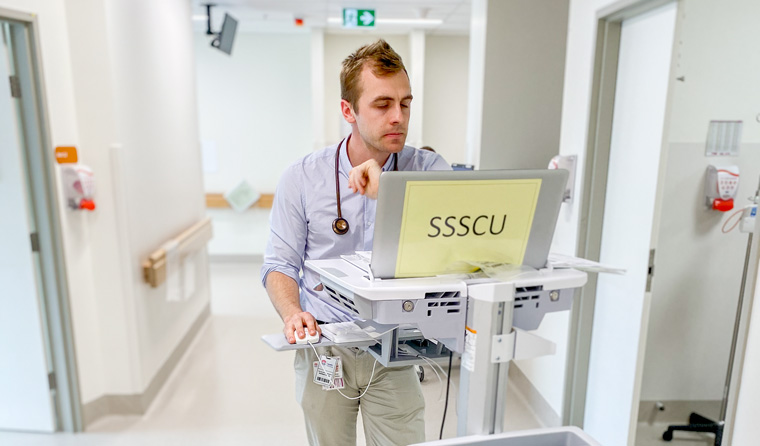News
Junior doctors more likely to be happy in the bush
Better work–life balance and more varied work are among the main reasons junior doctors appreciate rural practice.
 Dr Matthew Lennon says rural-based junior doctors perform tasks which are often reserved for specialist trainees at other hospitals.
Dr Matthew Lennon says rural-based junior doctors perform tasks which are often reserved for specialist trainees at other hospitals.
The findings are derived from one of Australia’s largest ever studies on junior doctor satisfaction, and may shed light on how recruitment strategies may bring more junior doctors to rural areas.
It is also the first study to provide a national picture on junior doctor satisfaction levels, and RACGP Rural Council member Dr John Kramer told newsGP he was not surprised by the results.
‘We get less opera out here, but we have better beaches,’ he said.
‘People who have never experienced it have to be told, so publicising studies such as this is important … we’ve got to get the message to them.’
The study’s researchers, led by the University of New South Wales’ Dr Matthew Lennon, utilised the Medicine in Australia: Balancing Life and Employment (MABEL) survey to examine 4581 doctors in their first four years after graduation.
Dr Lennon said while overall work satisfaction was high for both metropolitan and rural junior doctors – sitting at about 85% – rural doctors were 54% more likely to be satisfied once other controlling factors were taken into account.
‘Compared to their metropolitan counterparts, rural doctors were more positive about their work–life balance, the amount of variety in their work, access to leave and leisure activities, and personal study time,’ he said.
‘An important part of this, we think, is that in smaller hospitals junior doctors often work directly with supervising consultants and get the opportunity to perform tasks under supervision which are often reserved for specialist trainees at other hospitals.’

More varied work is among the main reasons junior doctors appreciate rural practice.
Having lived rurally for more than 30 years, Dr Kramer said his message to city-based junior doctors considering a rural placement is simple.
‘Come and try it. Have a 10-minute commute to work instead of an hour-and-a-half. Go home for lunch. Spend more time with the family,’ he said.
‘That’s a dream in the city … [plus] junior medical officers get to do more stuff in regional areas because there are fewer registrars, so they get their hands dirty more readily and acquire skills more quickly.’
It is a point with which Dr Lennon, who grew up in Sydney but completed his training in Wagga Wagga, agrees.
‘That rural junior doctors are more positive about lifestyle and access to leisure activities was not something we were anticipating,’ he said.
‘Many doctors and medical students aren’t aware of great options of working in rural areas, so to attract early career doctors we should emphasise the benefits of rural work.
‘To help build a strong future rural medical workforce, we also need to mitigate any perceived weaknesses by strengthening specialist mentorship and peer networks, and by improving social, employment and educational opportunities for families.’
Login below to join the conversation.
junior doctors regional rural wellbeing
newsGP weekly poll
Health practitioners found guilty of sexual misconduct will soon have the finding permanently recorded on their public register record. Do you support this change?